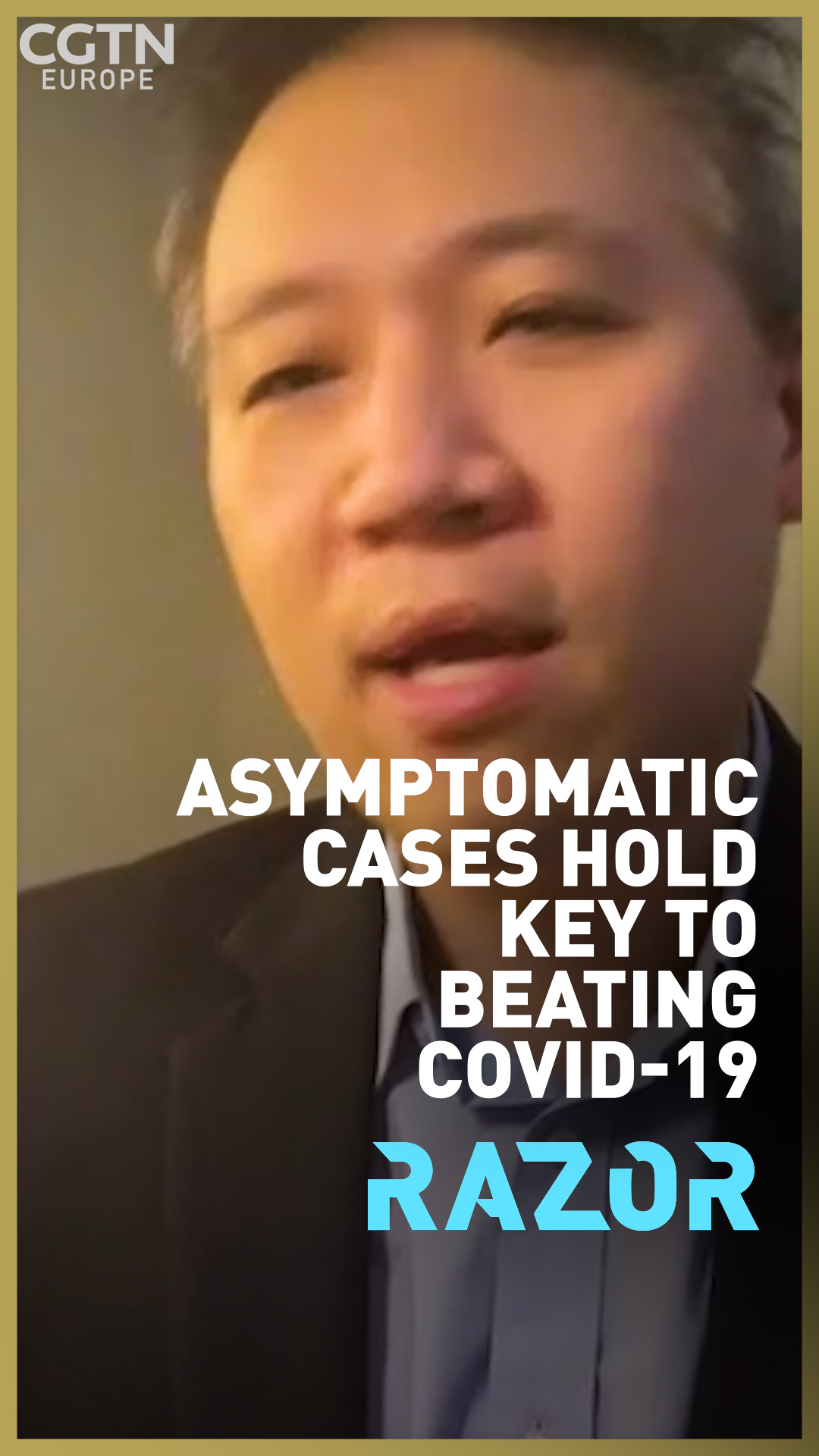01:29

A leading epidemiologist has told CGTN Europe that asymptomatic cases of COVID-19 could be the main driver of the virus's spread and may even account for more than half of infections worldwide.
Eric Ding, from the Harvard Chan School of Public Health, said that understanding more about infected people who display no coronavirus symptoms was vital to limiting the disease's continued spread.
"We definitely need to learn more," Ding told CGTN Europe's RAZOR program. "There is a high number of people with no symptoms, ranging from anywhere from 50 percent in Iceland, to 80 percent in a maternity ward hospital in New York or 60 percent on a United States Navy aircraft carrier, which tested all 4,800 sailors.
"These asymptomatics seem to be what is driving this epidemic, which is what makes social distancing all the more important."
Ding said this is why the US Centers for Disease Control and Prevention recommend wearing face masks, because you don't know who could be carrying COVID-19.
"This virus could be very dangerous once we lift the lockdown and we allow business to return to normal, because a large number of people who could be potentially healthy could be carrying it around in everyday life," said Ding.

Maintaining social distancing is vital because of the high prevalence of asymptomatic cases. /Tolga Akmen/AFP
Maintaining social distancing is vital because of the high prevalence of asymptomatic cases. /Tolga Akmen/AFP
Yet, the high prevalence of asymptomatic patients could also be a positive, according to Ding.
"It offers potential solutions in which the virus, if it has a very high asymptomatic rate, could mean that our population may build up herd immunity faster," he said.
"That information is still very preliminary. Hence the need to potentially keep the social distancing longer than we originally anticipated."
Ding also preached caution about placing too much faith in immunity passports, which show people who have recovered from the virus and are certified immune.
"Passports sound great and wonderful, but there's lots of assumptions of how long it [immunity] lasts," he says.
Video editor: Paula Harvey
Sign up here to get the COVID-19 Europe bulletin sent directly to your inbox